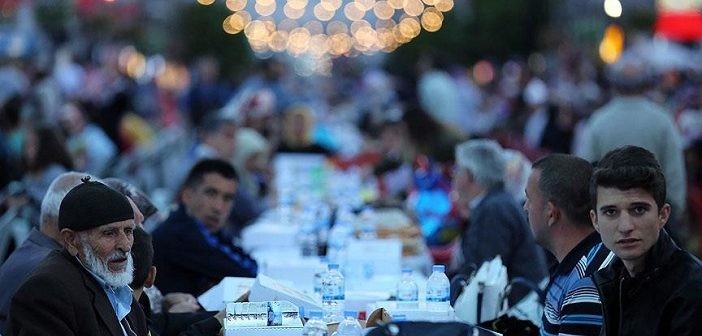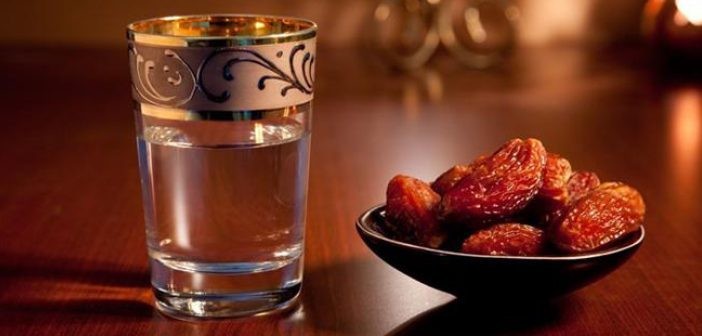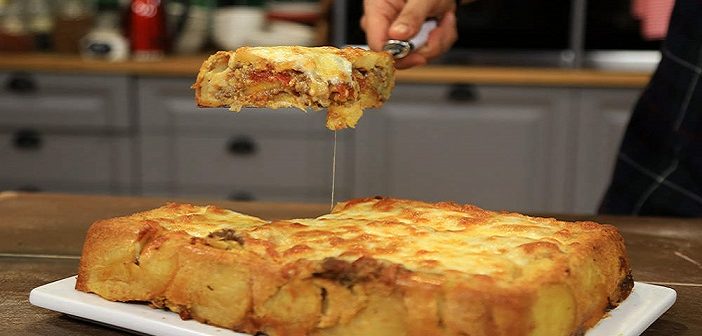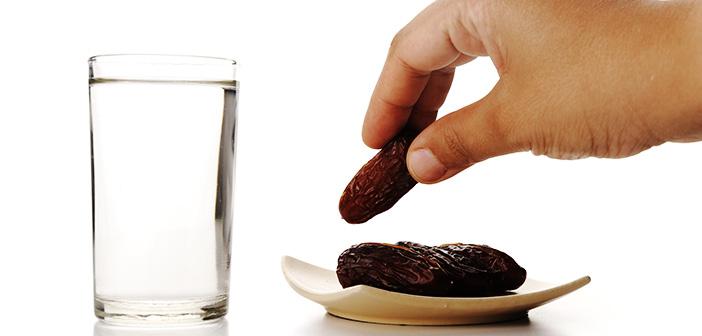
The Distribution of the Spoils
What is the distribution of the spoils? How is the distribution of spoils according to islam?
After lifting the siege on Taif, the Blessed Prophet -upon him blessings and peace- lead the Muslim army to Jiranah, where the captives and spoils were held. Arriving around the same time with his forces was Abu Musa al-Ashari -Allah be well-pleased with him-, returning victorious from the Battle of Awtas. The Believers had scattered all their enemies and time had now come to distribute the spoils. The sum of spoils seized from all the recent battles amounted to twenty-four thousand camels, forty-thousand sheep and four-thousand uqiyyah worth of silver, not to mention six-thousand captives.[1]
Before beginning to distribute the spoils, the Noble Prophet -upon him blessings and peace- declared, “Let those who have anything of the spoils with them, even if it be a needle or a string, return it! Know that treachery with regard to spoils brings shame and fire for its culprit in the Hereafter!” (Muwatta, Jihad, 22’ Ahmad, V, 316)
The Noble Messenger -upon him blessings and peace- was meanwhile informed that Shayma -Allah be well-pleased with her-, his foster sister, was also among the captives. The Blessed Prophet -upon him blessings and peace- immediately had her brought next to him. He took of his rida and laying it on the ground for her to sit, welcomed her with kindness and compassion. Seeing Shayma -Allah be well-pleased with her- made the Blessed Prophet -upon him blessings and peace- reminisce their childhood days. His eyes welled up. He asked her about her parents, who, as it turned out, had passed away a number of years ago. After asking her about her relatives, the Blessed Prophet -upon him blessings and peace- then said:
“If you wish, you can remain with me where you will be treated with much love and respect. But if you wish, I can also give some possessions and see you off to your tribe. I can do that too!”
Shayma -Allah be well-pleased with him- chose to return to her tribe and after that became Muslim. The Blessed Prophet -upon him blessings and peace- gave both her and her living family members quite a number of camels and sheep. He also presented her with two slaves, one male and the other female who were later married to each other by Shayma -Allah be well-pleased with her-. (Ibn Hisham, IV, 91-92; Waqidi, III, 913)
The Noble Messenger -upon him blessings and peace- then delayed for a little while longer distributing the spoils. Those with weaknesses in their hearts, who could not see the underlying wisdom of this delay, were disgruntled. The Bedouin Arabs, especially, demanded the distribution immediately. They even cornered the Blessed Prophet -upon him blessings and peace- astride his camel beneath a samurrah tree, to the point where his coat got caught up in one of its branches. He halted his camel and stated, “Give me my coat! If I had spoils as many as these trees, I still would have distributed them amongst you in their entirety; and then you would have seen that I am neither a miser, nor a liar, nor a coward!” (Bukhari, Jihad, 24)
Later, even when the Blessed Prophet -upon him blessings and peace- actually begun distributing the spoils, the crowd piled up around him was causing him so much discomfort that, finally, referring to a bygone prophet, he remarked, “Allah had sent one of his servants to a tribe, who beat him up and split his head open. But that servant, while wiping the blood running down from his head with his hand, was simply praying, ‘Forgive my tribe, my Lord, for they do not know what they are doing!’” (Ahmad, I, 456; Muslim, Jihad, 105)
The reason behind the delay came to light only on the tenth day of their arrival at Jiranah. On that day an envoy from the defeated Hawazin came to the Blessed Prophet -upon him blessings and peace- announcing their acceptance of Islam and asking therefore for the return of their captives and seized possessions. Speaking on their behalf, a man from the Saad Clan rose and said, “Those waiting under the shade now, Messenger of Allah, are your foster aunts, maternal and paternal, and women who milkfed you and looked after you as a child! Had we been the ones to have milkfed and looked after, say, the King of Syria or Iraq, and having fallen in a like situation asked for their compassion and benevolence, they would not have denied us! Yet you are the best anyone can care for and look after!”
“I delayed the distribution of the spoils until today”, then said the Blessed Prophet -upon him blessings and peace-, “but you have arrived quite late. Now chose between your captives or your belongings!”
The envoy opted for their captives. The Messenger of Allah -upon him blessings and peace- then said, “I return to you the captives that fell to my lot and to the sons of Abdulmuttalib. Come to me tomorrow after zuhr salat for the others!”
The next day, the Noble Prophet -upon him blessings and peace- gathered his Companions and explained them the situation. Informing them that he had returned the slaves that fell to his lot, he said, “Whoever wishes to free their captives willingly and thereby make their brothers happy, let him do so. And whoever wishes not to give that which has fallen to his lot free of charge then we shall compensate him with the first spoils Allah will grant us. Those who wish so can opt for that!”
That the Blessed Prophet -upon him blessings and peace- consulted the Companions over the issue is because of the fact that they had a free right of exercise over the captives.
The Companions, seeing the Prophet of Allah -upon him blessings and peace- set his own captives free, without further ado, gladly set their own captives free, too, enthusiastic to reap their own share of the rewards awaiting them in return. “And we, too,” they said, “hereby return our captives to the Messenger of Allah!” (Bukhari, Maghazi, 54; Ibn Hisham, IV, 134-135)
Thus, thousands of captives were handed over to Hawazin that day, free of ransom. Such a scene was never before seen in history. But now, history was made to behold the spectacle of thousands of captives being set free without any worldly return, all thanks to the Blessed Prophet -upon him blessings and peace-, who had vitalized his ummah with Islamic morals.
It was a profound display of loyalty shown by the Noble Messenger -upon him blessings and peace- to a people, for the sake of a woman to have breastfed him as a toddler, who had hailed among them. It is an exceptional lesson of virtue for those who are blinded to the very notion; especially when one thinks that human beings, on the whole, tend to completely erase the bleak memories of favors received from others, rather than to bring them up. Loyalty is thereby turned into a word merely found in dictionaries.
Moved by this immense act of loyalty, the entire Hawazin tribe accepted Islam. Even their leader, Malik ibn Awf, who was at Taif at the time, was so utterly yet pleasantly astonished to hear the news, that it only took a small invitation by the Prophet of Allah -upon him blessings and peace- for him to enter the folds of Islam. The Blessed Prophet -upon him blessings and peace- granted him a hundred camels and reinstated him as the leader of his tribe.[2]
The greatest lesson to be drawn from all this is that the best mode of tabligh is through good morals. It also points to the fact that while a prudent diplomatic approach is a means for greater goodness, a senseless approach is sure to engender damage of a greater scale.
The Blessed Prophet -upon him blessings and peace- distributed the spoils, justly, in the best possible manner. Of the five shares the spoils were divided into, four were distributed among the soldiers, while one was allocated to the Bayt’ul-Mal, or the Treasury. Although the Treasury was at the Blessed Prophet’s -upon him blessings and peace- disposal, he did not utilize it for personal use, as he indicated to his Companions, before beginning the distribution, by plucking a hair from the camel in front of him and saying:
“I have not the least to do with your spoils; not even its hair, let alone a camel…Why are you impatient? Even if the spoils are as many as the stones and trees of this valley, I will hand them out to you. If I spare a fifth of these, it is only to spend on the poor among you!” (Muwatta’, Jihad, 22; Ahmad, V, 316)
In line with the Divine command given him, the Blessed Prophet -upon him blessings and peace- handed out an extra share from that fifth to the muallafat’ul-qulub, that is those whose hearts were to be endeared to Islam. Among them was Hakim ibn Hizam, who explains:
“I wanted the Messenger of Allah to give me some of the spoils. He gave me a hundred camels. I asked for more and he gave me another hundred. I asked yet again and he gave me yet another hundred. He then said, ‘Surely possessions, Hakim, are alluring and sweet. Whoever takes them free of greed shall reap abundance from them. Whoever sets his eyes on them and seizes them with greed shall find no abundance in them. Such people are like those who eat and eat without ever getting full. The hand that gives is better than the hand that receives.’
Thereupon, I said, ‘By Allah who has sent you with the true religion, Messenger of Allah, so long as I am alive, I will never accept anything from anyone else but you.’”
Hakim -Allah be well-pleased with him- then took only the first hundred camels he was given by the Prophet of Allah -upon him blessings and peace-, forfeiting the rest. Years later a day came when Caliph Abu Bakr -Allah be well-pleased with him- called him to hand out his share of the spoils but he refused. Later on, Caliph Omar -Allah be well-pleased with him- summoned him to give him something of the spoils, only to have Hakim refuse once again. Realizing there was no way he could convince Hakim -Allah be well-pleased with him- to take what he was offering, Omar -Allah be well-pleased with him- felt obliged to say to those who were present:
“Bear witness Muslims that I am giving his share of the spoils allocated to him by Allah but he is not taking it!” Hakim -Allah be well-pleased with him- kept true to his word not to take anything from anyone so long as he remained alive. (Bukhari, Wasaya, 9; Waqidi, III, 945)
Still not a Muslim, the Qurayshi notable Safwan ibn Umayya had, regardless, not left the side of the Blessed Prophet -upon him blessings and peace- at both Hunayn and Taif. Safwan was also there with the Prophet of Allah -upon him blessings and peace- as he was walking amid the spoils at Jiranah inspecting them. The astonished Safwan was admiringly gazing at the valley full of camels, sheep and shepherds keeping an eye on them. The Blessed Prophet -upon him blessings and peace-, watching Safwan with the corner of his eye, asked:
“Do you like what you see of the valley?”
“Yes”, replied Safwan.
“You can have it both…the valley and what’s on it!”
Unable to contain himself, Safwan remarked, “Only the heart of a prophet could be so generous!” immediately after which he pronounced the word of shahadah and became Muslim. (Waqidi, II, 854-855)
Safwan -Allah be well-pleased with him- later returned to Quraysh, exclaiming, “Become Muslim my people. By Allah, Muhammad is giving away in plentitude, without the least fear of poverty!” (Muslim, Fadail, 57-58)
Around forty muallafa’tul-qulub, including Abu Sufyan, Aqra ibn Habis, Uyaynah ibn Hisn, Abbas ibn Mirdas and Malik ibn Awf, were handed a dazzling amount of possessions.[3]
A poet by the name of Abbas ibn Mirdas, unsatisfied with the amount given to him, recited a bitter poem about the Blessed Prophet -upon him blessings and peace-. When he found out, the Blessed Prophet -upon him blessings and peace- called him and said:
“I will cut your tongue off!” Prior to that, however, the Prophet of Allah -upon him blessings and peace- had told Bilal Habashi -Allah be well-pleased with him- to, “…give him a pair of clothes when I order you to cut his tongue off!”
When the time came, the Prophet -upon him blessings and peace- signaled Bilal to “…go and cut his tongue off!” As Bilal took hold of him by the arm, Abbas began to scream, “Is the Messenger of Allah going to cut my tongue off? Muhajirun! He is going to cut my tongue off! Ansar! He is going to cut my tongue off!” Bilal -Allah be well-pleased with him- continued escorting him away, his hands firmly clutching his arms. But when Abbas raised his screams to a higher pitch, Bilal -Allah be well-pleased with him- said, “Be quiet! The Messenger of Allah commanded me to silence you with a pair of clothes!” Bilal -Allah be well-pleased with him- then gave an extra pair to Abbas, who by then had calmed down. Ultimately though, he was given a further one-hundred camels by the Prophet of Mercy -upon him blessings and peace-. (Ibn Saad, IV, 273; Muslim, Zakat, 137)
During the distribution of the spoils, Saad ibn Abi Waqqas -Allah be well-pleased with him- commented, “Messenger of Allah, you left a poor man like Juayl ibn Suraqa and gave notables like Uyaynah and Aqra a hundred camels each!” To that the Blessed Prophet -upon him blessings and peace- replied, “By Allah, in whose Hand of Might my life resides, even if the earth was to abound with people like Uyaynah and Aqra, Juayl would still be better than all of them put together! But I am looking after these people to warm them to Islam and to refer Juayl to Islam, to which he is firmly attached, and to the superior rewards prepared for him in the Hereafter!” (Ibn Hisham, IV, 143; Ibn Saad , IV, 246)
That the muallafat’ul-qulub were given plenty of spoils was misunderstood by many and it caused some discomfort among the Companions. Someone by the name of Dhu’l-Huwaysirah, from the Tamim Clan, even crossed the line and remonstrated disrespectfully, exclaiming, “Be just, Messenger of Allah!” Much grieved by this reaction, the Blessed Prophet said, “Is that so? And who is going to be just, if I myself am not?” (Muslim, Zakat, 148)
It was not much long before a Revelation arrived:
“And of them there are those who blame you with respect to the alms; so if they are given from it they are pleased, and if they are not given from it, lo! they are full of rage. And if they were content with what Allah and His Messenger gave them, and had said: Allah is sufficient for us; Allah will soon give us (more) out of His grace and His Messenger too; surely to Allah do we make our petition.” (at-Tawbah, 58-59)
The ayah brings to light that despite being dealt out by the Prophet -upon him blessings and peace-, the distribution of spoils was in fact a Divine act. It also emphasizes the difference between the ignorant and the contended of heart.
Most of the reaction, in fact, came from the way of Ansar. But it was not from the general share, that is the four-fifths of the spoils, that the Blessed Prophet -upon him blessings and peace- handed out this generous portion. It was rather from what was called fay, the one-fifth of the spoils over which the Blessed Prophet -upon him blessings and peace- exercised exclusive control. Yet even that seemed to provoke the reaction of some young Ansari men.[4] To settle the objections that were coming in regard, the Noble Messenger -upon him blessings and peace- gathered the Ansar, before the situation got out of hand. In a gathering to which nobody except for the Ansar was admitted, to make them understand the core of the matter, the Blessed Prophet -upon him blessings and peace- addressed them in the following manner, reminding them of the favors they had received from the Almighty:
‘Ansar…! I hear of the complaints about me that run through your hearts. But tell me…Were you not shown the right path by Allah, through me, when you were astray? Did you not become rich after I came to you, when before that you were poor? Were your hearts not united by Allah with my arrival, when spite and enmity were eating you away?”
To all those questions, the Ansar replied, “All gratitude is for and blessings are from Allah and His Messenger!”
The Blessed Prophet -upon him blessings and peace- continued his moving speech. “If you were to tell me, Ansar”, he declared, “You came to us when your people had denied you and we affirmed you! We aided you when your people deserted you! Your people drove you out and we embraced you! You were poor and we made you partner to our wealth’, I would have then affirmed you, too, and said ‘you are speaking the truth!’ Ansar…! Is it true that you have said certain things because I gave some worldly goods to certain people? Were you upset over me giving some worthless goods of the world to some just to warm their hearts to Islam and deprived you of them, trusting the strength and maturity of your iman...is that what distresses you? Ansar…Would not you want to return home with your Prophet while everybody else returns with their possessions?”
The tears that had already welled up in the eyes of the Ansar now began to spill over and freely flow over the touching words of the Blessed Prophet -upon him blessings and peace-. They were weeping as they said, “We want to return home with you, Messenger of Allah”. Their undying love for him was suddenly rejuvenated. The Blessed Prophet -upon him blessings and peace- , too, was crying with them. To comfort them and in appreciation of the devotion they expressed, the Noble Prophet -upon him blessings and peace- then said, “Ansar…Had there not been the honor and virtue of Hegira, I surely would have wanted to be from the Ansar. Ansar…If every person was to take a path, I will still be sure to follow the path of Ansar!”
Following this emotional meeting, the former complaints made way for feelings of contentedness with “Allah and His Messenger”, which became the only sentiments reverberating from Ansari ranks thereafter. A wound caused by a misunderstanding was hence permanently healed by the Blessed Prophet -upon him blessings and peace-. (Bukhari, Maghazi, 56; Muslim, Zakat, 135; Haythami, X, 31)
There are many lessons for us to take from the above exemplary conduct of the Blessed Prophet -upon him blessings and peace-. By nature, human beings have a soft spot for kindness and being on the receiving end of generosity. An enemy treated generously is an enemy no more; and if already a friend, the friendship will only become more intimate.
The Blessed Prophet -upon him blessings and peace- entered ihram for umrah and left Jiranah following a thirteen day stay there.[5] It has therefore been considered to be of greater merit for those who stay in and around the vicinity of Mecca to enter ihram at Jiranah.
[1] Ibn Saad, II, 152.[2] Ibn Hisham, IV, 137-138.[3] Waqidi, III, 944-947.[4] Kâmil Mîras, Tecrîd Tercemesi, X, 341.[5] Bukhari, Umrah, 3; Tirmidhi, Hajj, 92/935.
Source: Osman Nuri Topbaş, The Prophet Muhammed Mustafa the Elect II, Erkam Publications
Encouraging Communal Salat
The Return from Badr














